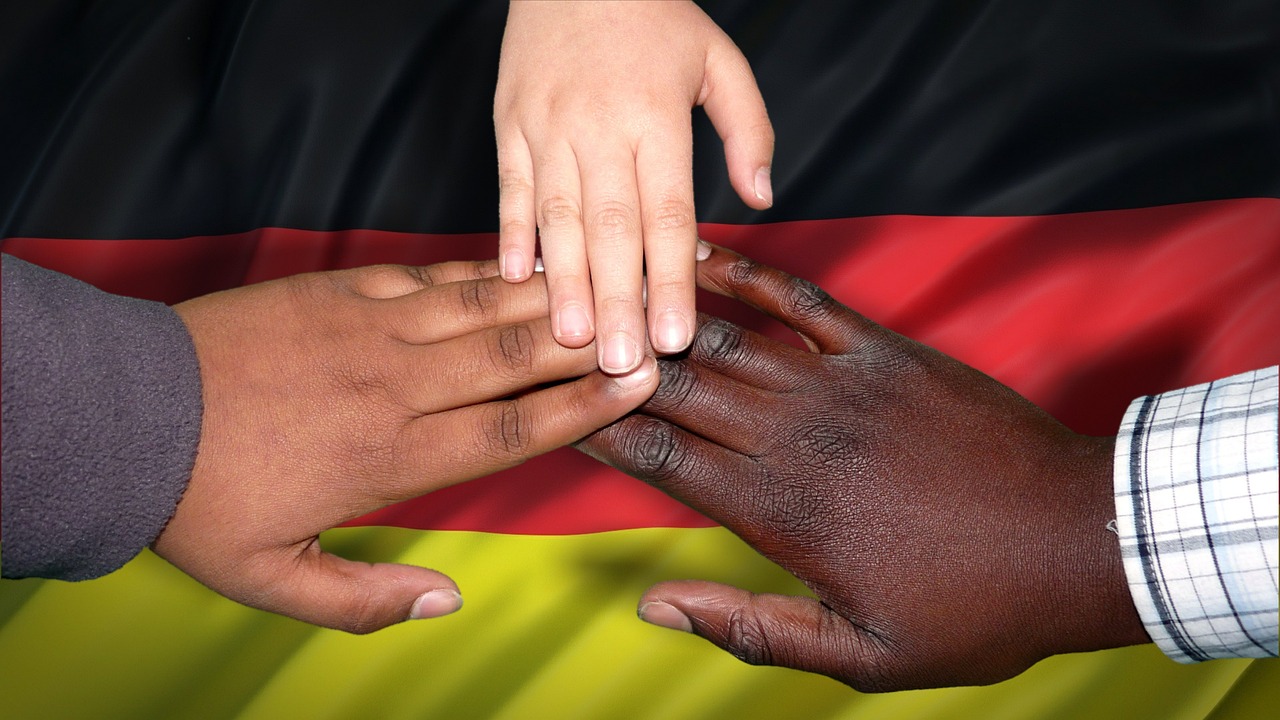Migration as a Driver of Development and Knowledge Transfer.
Knowledge transfer to migrants as a lever for development in their countries of origin

A fine rain of information drenches us every day with news about migration. With scoops that talk about the (growing) dimension of the phenomenon, its implications, or the challenges and risks it poses. Sometimes they point out the costs and also the benefits it entails for those who migrate, for their countries of destination and their countries of origin (and the following lines will deal in part with this subject). Through chronicles, reports, reports and so on, we try to understand the issue and its dynamics. As if we had never migrated: as if we did not remember that all the populations that inhabit our world today are the result of migrations from another era and that, to a greater or lesser extent, somewhere in time, our ancestors will undoubtedly have been migrants.
For this reason, it should come as no surprise that the International Organization for Migration (IOM) states in its World Migration Report 2024 that "international migration continues to be a driver of human development and economic growth". As in the past, it "remainsso" now, when "the world is at the midpoint of what should be a pivotal decade for development", the World Bank says in its report on 'Global Economic Prospects 2023'.
A year ago, the end of the COVID-19 pandemic was a cause for optimism. Until we realised that we were facing a difficult and uncertain juncture, marked by the largest number of conflicts in 80 years - spanning Ukraine, Gaza or Sudan -; conditioned by dizzying technological advances, their advantages and their notable problems; weighed down by incipient challenges that deepen inequality, and by challenges that do not cease, such as the worsening of climate urgency, or the progressive polarisation of our societies which, according to the United Nations Development Programme (UNDP) in its Annual Report 2023, makes it more important than ever to invest in the search for development solutions for countries and people.
It is here, in this complex context, that two concepts converge and feed back into each other: development and migration. In its report entitled 'Migrants, Refugees and Societies', the World Bank says that migration "is a response to global crises and imbalances, such as the huge income and welfare gaps between countries". It refers to that migration whose scope is increasing day by day, which entails inevitable social changes and interactions between cultures, and which this year, according to the IOM, has registered 281 million international migrants in the world and a record number of displaced persons who, due to conflicts, violence or other reasons, have reached 117 million and surpass the highest figures known in recent times. For its part, Europe had, as of January 2023, 27,383,515 inhabitants originating from third countries, which represents 6.1% of its total population, according to the Annual Report on Migration and Asylum 2023 presented by the European Migration Network in July 2024. In Spain, according to the National Institute of Statistics (Continuous Population Statistics as of 1 October 2023), the immigrant population exceeds eight and a half million people, which implies 17.5% of the total population.
It seems the right time to delve deeper into the opportunities offered by migration as an agent capable of encouraging progress in this world. It is an environment where knowledge-based economies prevail and where demographic changes lead to global competition for talent and international mobility of human capital. Far from going out of fashion, this trend will intensify for, as the World Bank warns in its report on 'Migrants, Refugees and Societies', "rich countries will need foreign workers to sustain their economies and meet their social commitments to older citizens; many middle-income countries, traditionally the main sources of migration, will soon have to compete for foreign workers, and many are not prepared to do so; and low-income countries have large numbers of unemployed and underemployed youth, but many of them do not yet have the skills demanded in the global labour market".
It turns out that all countries, that knowledge societies with their knowledge economies, are starting to become truly aware of the interesting effects of migration in relation to human development. And that, in addition to the obvious, which we have just described, they are beginning to attach importance to the wide range of transfers, many of them bi-directional - affecting countries of origin and destination - that are more than beneficial and are born out of migration.
This is the case of knowledge transfer, which positions migrants as development actors in destination countries as well as in countries of origin. These benefits can relate to regular and irregular migrants, as well as to highly skilled and low-skilled migrants (even uneducated ones, as these may be non-academic skills capable of generating important changes in their communities of origin).
Countries of origin, many characterised by emerging economies and often lacking sufficient human capital to compete with those that dominate the knowledge economy, could benefit more from these knowledge transfers if they incorporate migration as an integral part of their strategies to reduce poverty and to integrate knowledge into all sectors of the productive apparatus, thus ensuring their economic growth and development.

For the World Bank and other agencies and experts, it is a proven fact that migrants, returnees - who return home equipped with new skills and other assets - as well as diaspora communities transfer ideas, innovations, technology and knowledge, and that this spurs job creation and modernisation in countries of origin. This is why they encourage these states to adopt policies and develop initiatives in bilateral cooperation with the countries of destination of their migrants. Those who have followed this advice welcome it, and we recall, for example, France's participation, in 2023, - announced by the European Migration Network in its Annual Report - in EU talent partnerships with Morocco and Tunisia. Another case would be the Young Generation as Change Agents project: a pilot implemented jointly between Spain and Morocco in 2019 to offer 100 Moroccan postgraduates studies in Spanish universities in strategic sectors of their country with the commitment to return and implement their ideas. These are just two examples, but there are many more and they bear fruit. They mean prosperity.
The impact of the transfer of new skills and knowledge by migrants in their countries of origin goes beyond reducing poverty; revitalising the country's economy; fostering innovation; its incalculable value for personal, family and national development; and even strengthening the integration of that state into the global economy.
In this sense, the World Bank states in its report on 'Migrants, Refugees and Societies' that knowledge transfers can also include the transfer of institutional and social norms to the country of origin, turning migrants into agents of change with a positive effect on institutional quality; on accountability and political responsibility; and on gender norms: this is the case, for example, of Turkish and Moroccan migrants in Europe, who have transmitted a liberal view of gender roles to their communities of origin and tend to have fewer children. The World Bank also points out in this regard that migration to countries with female political empowerment is associated with higher female parliamentary participation in the countries of origin.
The benefits are so great that, in addition to ensuring a smooth return for their migrants, some countries facilitate diaspora participation for a profitable future. Given the topic at hand - knowledge transfer - we devote a few brief lines to the so-called scientific diasporas, which can provide part of the solution to the problem of the so-called brain drain for many countries of origin. They are genuine knowledge communities and are nourished by the international mobility of scientists and qualified professionals who remain committed to their countries of origin. They use, among other tools, new technologies to share information among a large number of people, and also to contribute from afar to the prosperity of their homeland. They promote research and seek to generate new knowledge that they circulate for the common good and to offer solutions to issues relevant to their countries of origin. It is a form, in short, of valuable knowledge transfer.
If these trends continue, if commitment and solidarity continue, if ideas to facilitate the circulation and transfer of knowledge for the benefit of developing countries continue, we have a hopeful future ahead of us. We will be looking forward to a freer, more dignified, more equitable and more equal future for all people.
